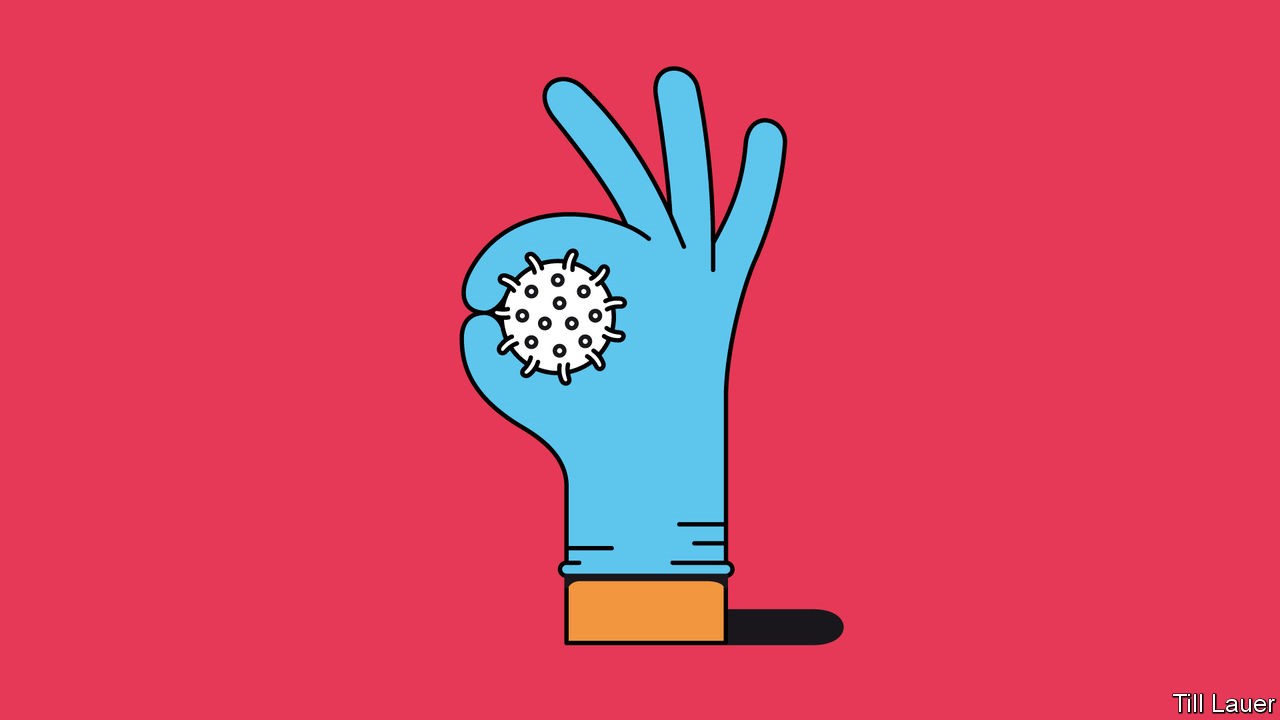

 字體:小 中 大
字體:小 中 大 |
|
|
|
| 2020/03/30 08:14:31瀏覽145|回應0|推薦0 | |
這本經濟學者雜誌在3月26日時貼出希望WHO接納臺灣入會的建議。從世界公衛體系不能有漏洞,加上台灣於去年12月底就曾詢問世界衛生組織是否有人傳人風險,很早就有警覺。因此就技術面而言,相較於正現入恐慌的西歐及美國。台灣的成就不低。但是很有趣地,這裡也貼出認為隔離檢疫措施是否侵害隱私,也質疑其人權民主度變低的問題。 筆者覺得這次台灣的防疫有兩個缺失,第一個是衛生福利部的官員沒有警覺社區感染的危險,僅僅就居家隔離及附近的民眾檢疫,以醫學檢驗和公衛實驗室角度來看,忽略了臨床醫學病例的觀點,雖然採檢病例是世界上人口密度比最高者,仍然沒有進行積極性的公共場所調查; 對於任何相關症狀者均要像疑似流行性感冒的程序作篩檢。雖然僅有七名不知傳染源,並宣稱已有演練,但若沒有在數天內釐清,而僅是玩偵探遊戲,便不是防疫。再者是到底什麼才會讓民眾心安?政府僅就口罩問題就大費周章過劇,其實在農曆過年前後還反覆不定。一會兒說通風良好處不用戴,一會兒又說要應付民眾預期心理開始說要大規模統籌「鋪貨」,還說只能至指定地點買指定規格扯,限制了經濟自由,最後還相繼傳出數種外科口罩品質不良,民眾謠言滿天飛,有人上班沒法子買,就又來玩科技服務說自己多先進的。筆者是在過年前就已在露天賣場的化工材料行,購買3M牌的P95口罩,到了半月前又購買N95口罩數個自己想辦法買,這總不會被限制吧?看了兩個月的新聞,蔡英文作為一個領導人,但是大部份行程偏坐後勤補給的,僅三次記者會加聯訪說明,不若歐美各國領袖,或北京高層每兩三日就會進行第一線公共關係的火線說明。 筆者外出防疫,除了去吃東西,也只敢坐在便利商店門口,除了3M口罩,就是還擔心不夠,要再一層外科口罩。昨天台灣有從發生症狀後29天才確診的病例,期間他或她進出不知多少公共場所及醫療院所,國外已有研究說,無症狀但有傳染力者有之,包括本人還無法依現有理論確診。照此來說,標題應該要被打問號比較妥當?
Banyan
ㄅ A champion against covid-19 is shut out of the body that fights the pandemic Mar 26th 2020 Editor’s note: The Economist is making some of its most important coverage of the covid-19 pandemic freely available to readers of The Economist Today, our daily newsletter. To receive it, register here. For more coverage, see our coronavirus hub SPARE A MOMENT and admire Taiwan. Its handling of the new coronavirus pandemic has so far saved many, many lives. The figures tell the story. A country of 24m, it has far fewer infections than its neighbours: just 235 as of March 25th, with only two deaths. Taiwanese officials seem to know what they are doing. The vice-president, Chen Chien-jen, is a noted epidemiologist and former health minister. It helps that the country has had a system in place to handle such crises, since the SARS epidemic of 2003, which led to 73 deaths. Back then, it was not clear who was in charge. So in 2004 the government set up the Central Epidemic Command Centre (CECC). Usually dormant, in an emergency its mandate is to work across government departments and commandeer the resources it needs. On January 20th President Tsai Ing-wen triggered the CECC and put the minister of health, Chen Shih-chung, in charge. Its response was swift, and ranged from screening inbound air passengers to energetic testing and rationing face masks. A curious legacy of dictatorship under the Kuomintang, or Nationalist Party, organised along Leninist lines, is Taiwan’s system of neighbourhood wardens. These have helped enforce quarantines and deliver food to those who cannot go out to get it. If Taiwan shines at anything, it is IT. National databases and big data have been put to use identifying those most at risk of infection. If that sounds like Big Brother, freedom-loving Taiwanese have widely accepted it for the common good. Meanwhile, the government is open and upfront about the progress of the outbreak. The media take the dissemination of information seriously. And a stiff fake-news law has helped shut down disinformation campaigns on social media originating from China, which are intended to sow mistrust of the government’s handling of the pandemic. If ordinary Taiwanese are broadly reassured, so is the economy. Business confidence has held up remarkably well. This is in striking contrast to the panic and uncertainty in Europe and America. Strong economic and personal connections with China might be expected to complicate Taiwan’s response to covid-19. After all, even America got it in the neck when it banned flights from China. Yet Ms Tsai and her administration have been in the doghouse with the Chinese authorities for years. China, which claims the island as its own, dislikes her Democratic Progressive Party for its espousal of formal independence from China. Yet the chill made for crisper decision-making once the threat became clear. And those strong connections alerted the Taiwanese authorities to a worrying outbreak in Wuhan before the Chinese government had come clean about it. China’s initial cover-up eroded people’s trust in its response. In contrast, vigorous and timely action in Taiwan set a reassuring tone. As early as late December Taiwanese health officials were boarding flights from Wuhan to check passengers for symptoms. Not all is rosy. It is harder to track infections among some 50,000 illicit migrants from South-East Asia, many of them care-workers. Taiwanese returning from other parts of the world risk setting off a new wave of infections. A Taiwanese press used to Chinese hostility has adopted a war footing against the coronavirus, including vigorous support for the government; if officials do fall short, or invade citizens’ privacy, it is not clear the press would call them out. For all that, Taiwan’s performance is remarkable. Even more remarkable is that the country is not a member of the World Health Organisation. The simple reason is that a bullying China refuses it entry. It may not even attend the World Health Assembly, the WHO’s decision-making forum, as an observer. When Taiwan wrote to the WHO in late December asking whether there was human-to-human transmission in the virus outbreak in Wuhan, the WHO, the body now admits, did not reply. Taiwan’s fight against covid-19 has shown that it can cope outside the WHO, even if there is a cost. But its exclusion causes wider damage. Taiwan’s early understanding of the threat of the coronavirus could have given others advance warning. Taiwan’s inability to disseminate its findings cost lives. The WHO has praised China for “perhaps the most ambitious, agile and aggressive disease containment effort in history”, which is true. But the WHO could spare a word of praise for Taiwan, too. Better yet, it should insist that China end its unconscionable boycott. Dig deeper: This article appeared in the Asia section of the print edition under the headline "An island at the ready"
|
|
| ( 心情隨筆|心情日記 ) |










